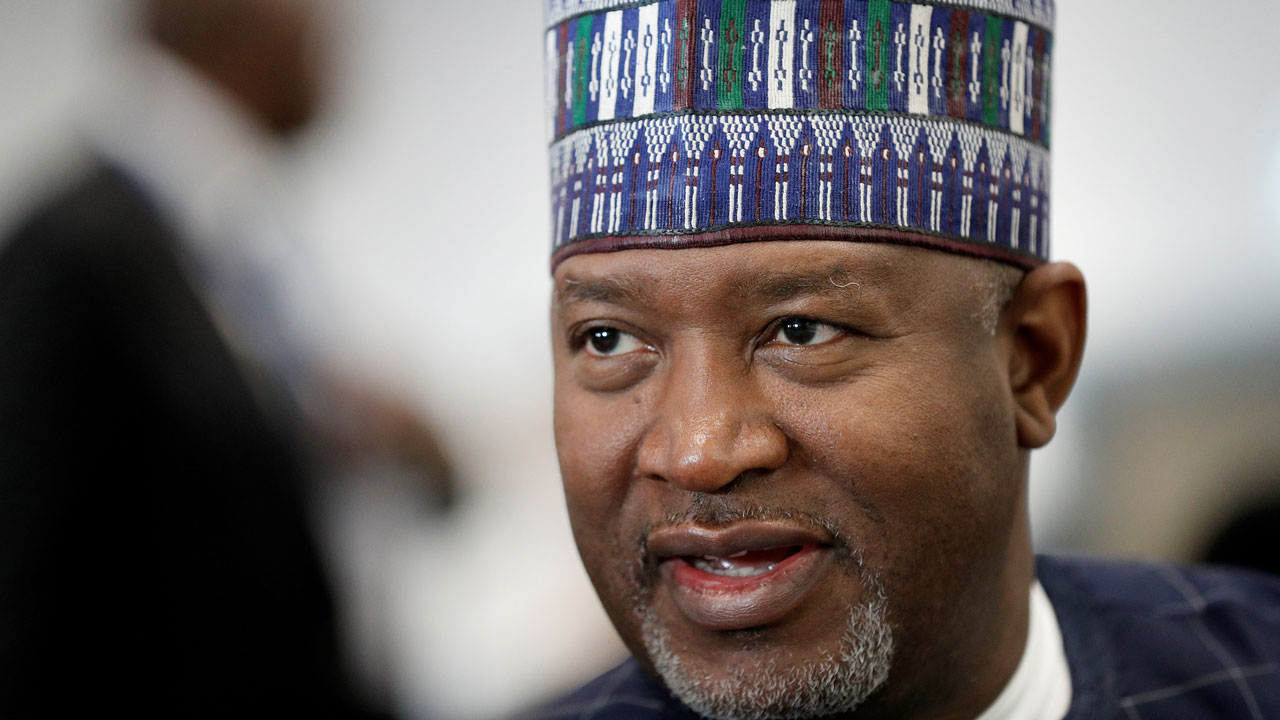
Adrian DENNIS / AFP
The budgetary poor funding showed in last year’s budget where only about 11 per cent was released to aviation. By implication, only N29.385 billion out of a total of N267.14 billion budgeted in 2018 was released for projects.
It, therefore, explains why the industry continued to face major infrastructural challenges and stunted growth, amid efforts to sustain safety and security critical components of the sub-sector.
Minister of State for Aviation, Hadi Sirika, however, said the ministry had improved the sector with execution of major safety critical projects in the last three years despite funding challenges.
The telltale signs of funding challenges are obvious in the operations of local airlines, where seven carriers are struggling to meet the demands of local traffic. Just last week, Arik Air was forced to cut scheduled operations by over 50 per cent when it was suddenly left with three out of nine operating aircraft.
Similarly, The Guardian recently reported cases of untrained and unqualified workforce in the civil aviation, with the airwing of the Nigerian Police Force among other government agencies blaming their plights on poor funding.
The minister, at a meeting with stakeholders in Lagos at the weekend, said his ministry was not immuned from the general problems of funding, such that it was only “magical” that they were able to record modest achievements.
Sirika, at the sixth edition of the parley, said between 2015 to date, the ministry had executed 14 policies, and 157 projects, out of which 130 had been completed to enhance safety, security and improve services at some airports nationwide.
He said it was not all grim for the industry, as it had recorded marginal growth of 33 per cent rise in local passenger traffic and 11 per cent in international travels. In effect, the industry’s contributions to the Gross Domestic Product (GDP) have improved some notches from 0.4 to 0.6 per cent as at last year.
Similarly, the development of an aerotropolis, cargo and agro allied terminals, also part of the aviation roadmap launched in 2016, were as well said to be at the development phase of their execution.
Meanwhile, stakeholders have, however, urged the ministry of state for aviation to begin to look for alternative means of funding outside of the yearly budget of the Federal Government.
President of the National Association of Nigeria Travel Agencies (NANTA), Bernard Bankole, said the planned concessioning of the airports to private investors would create more than enough funds for the industry and make returns to government coffers.
Also, an aviation security expert, Group Capt. John Ojikutu (rtd), urged the ministry to first look inwards, and try to know the worth of the internally-generated revenues of service providers like the Federal Airport Authority of Nigeria (FAAN), Nigerian Airspace Management Agency (NAMA) and to some extent, that of the Nigerian Civil Aviation Authority (NCAA).
“These, we need to know before we start providing intervention funds from the budgets of other social sector,” Ojikutu said.
[ad unit=2]



